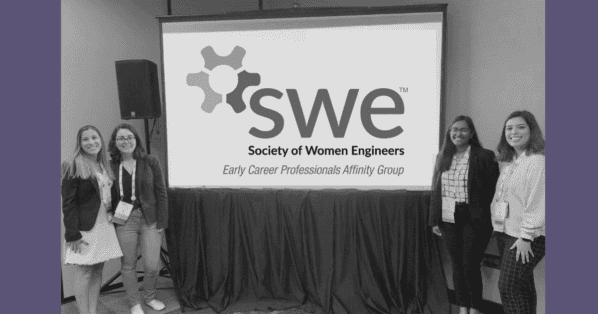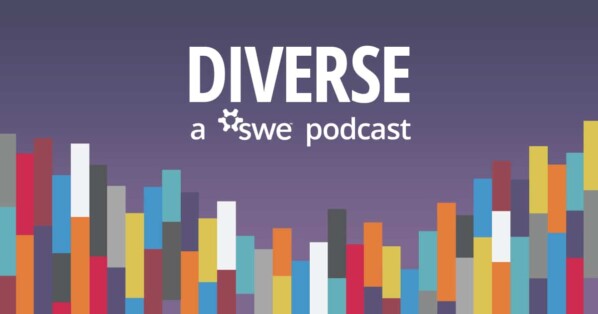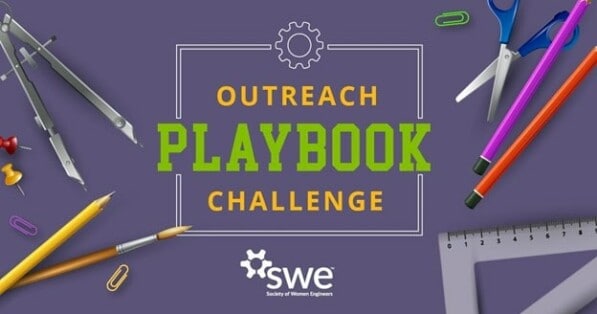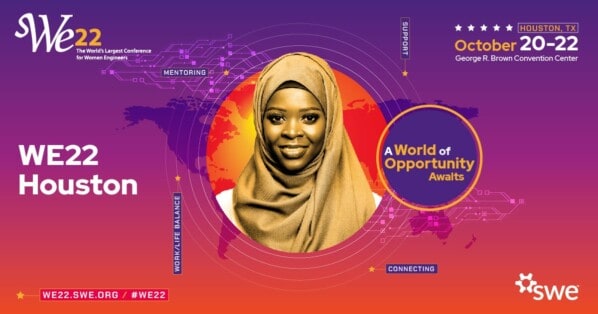In a year where equity and racial justice has been front and center, the Racial Inclusivity for Society Equity (RISE) Senate Sub-Team recognized at the outset that the scope of this work was significant and would likely require more than a year of dedicated effort to understand the many nuances of intersectionality and systemic barriers that inhibit our inclusion goals. Our work this year focused on the experiences of underrepresented minorities in SWE, and establishing a vision of what should change to achieve SWE’s mission for all members.
We began with a close examination of the minority-serving spaces in SWE. The SWE Diversity, Equity & Inclusion (DEI) Affinity Groups (AGs) focused on African Americans, Latinos and Asian Connections provided some great feedback about how their members perceive SWE and opportunities to increase the impact of the Affinity Groups within SWE. The DEI AGs shared a strong consensus that the AGs would benefit from more visibility and to have a more defined structure and role. It was also clear that while many view the DEI AGs as Subject Matter Experts for their racial or ethnic identity, the true role of the AGs is to serve as a resource to connect and support members.
Recognizing that relatively few collegiate members are involved in the AGs, we connected with the SWE Collegiate Section Leaders at Historically Black Colleges and Universities (HBCUs) and Hispanic Serving Institutions (HSIs) to gain insight into the unique dynamics of SWE on these campuses. Based on these discussions we found that, while SWE definitely has a presence at these schools, the sections tend to be relatively small in comparison with the local National Society of Black Engineers (NSBE) or Society of Hispanic Professional Engineers (SHPE) chapters, which changes the dynamics of attracting members and offering engineering professional development resources on campus. Additionally, most of the SWE sections at HBCUs and HSIs tend to not have strong connections with SWE collegians or professionals from other sections, or at the Society level. Proposed recommendations in this area include creating connections between members at HBCUs and HSIs, promoting engagement with the DEI AGs and encouraging local partnerships with SHPE and NSBE. A key outcome was the recognition that more ways are needed to build connectivity between SWE leaders at the local and Society level with common backgrounds, needs and interests. As the first step in this direction, the RISE Sub-Team hosted a Town Hall event to bring together DEI AG leaders and HBCU and HSI SWE members. Hopefully, there will continue to be similar events in the future to renew these relationships annually.
The third area of focus was to look at to what extent SWE’s STEM Outreach Programs are able to reach underserved populations. Comparing SWE’s programs to the best practices at other highly diverse organizations, we found that SWE’s STEM Outreach is comparable in the types of programming available, but many of the resources are underutilized. The sub-teams recommendation is to increase awareness among members of these resources and develop additional opportunities for the AGs to partner with local organizations to leverage the materials that are currently available.
In considering all of the data and input that was collected, our team proposed the following visioning statements:
- Visible representation in all facets of SWE
- Thriving collegiate SWE sections and affiliates at Minority Serving Institutions that result in alumni who become SWE professional members
- Local collaborative relationships between SWE and partner societies, parent educators & schools
- Strong Affinity Groups that are core to the SWE infrastructure who serve to connect and grow underrepresented minority members
- Accessibility to world-class DEI programming and resources, including K-12 outreach, collegiate and professional content tailored to the needs of different groups
In addition to the research efforts below, our team collaborated with the DEI AGs to create an infographic for SWE collegian members attending Minority Serving Institutions to facilitate easy access to a wide variety of relevant resources. It can be found here.
Our sub-team has been very passionate about this work, and I wanted to share a few words from our stakeholders about the impact:
“Through our work this past year, I gained a better understanding of the unique challenges that SWE Sections at HBCUs and HSIs face and how SWE can help with these challenges. It was a true honor to work on the RISE Team and with our many stakeholders!” – Danielle Schroeder
“I think the greatest impact we’ve been able to make on the RISE team has been to amplify voices that otherwise would’ve gone unheard.” – Kate Van Dellen
“A profound thing I have learned through working on Outreach related to the RISE Sub-Team efforts is that we truly have an opportunity to pave the way. So many organizations are looking to SWE in this space, what an opportunity to truly lead and partner!!!!” – Patricia Walker
“I feel that the impact from the RISE subteam (so far) has been connected to the planning of AG outreach efforts for FY22 and beyond. For example, one goal for the African American AG for FY22 is to aim to build strategic partnerships with SWE chapters at HBCUs.” – Louvere Walker-Hannon, African-American AG Lead
“The RISE team’s engagement with the Affinity Groups provided valuable insights and actionable recommendations on how to help the AGs thrive, grow, and, importantly, extend the bridge to local groups – sections, HBCUs, HSIs and partner organizations.” – Barbara Brockett, SWE BOD Affinity Group Liaison
As we anticipated, there is still more work to be done in this space and it is proposed that a Senate Sub-Team continue this work into next fiscal year (FY22) with a focus on understanding the root cause of barriers that were identified in FY21. Thanks to this year’s team for their efforts!
The FY21 Racial Inclusivity for Society Equity team is comprised of the following members:
- Bianca McCartt (she/her) – Senator and Sub-Team Lead
- Stephanie Yum (she/her) – Senator and Sub-Team Vice Lead
- Caity Hines (they/them) – Senator
- Patricia Walker (she/her) – Senator
- Kate Van Dellen (she/her) – Senator
- Danielle Schroeder (she/her) – Senator
- DaNae’ Winston (she/her) – Senator
- Brianna Watson (she/her) – Special Senator
- Cherie Cain (she/her) – Secretary of the Senate & Sub-Team Advisor
- Dr. Maisha Gray-Diggs (she/her) – Special Director & Sub-Team Advisor
- Dr. Rose-Margaret Ekeng-Itua (she/her) – Special Director & Sub-Team Advisor
- Dr. Roberta Rincon (she/her) – SWE Senior Manager of Research & Sub-Team Advisor
More articles from the SWE Senate:
- SWE Senate Society Bylaws Streamlining Sub-Team Findings and Recommendations
- SWE Senate Changing Work Sub-Team Findings and Recommendations
- SWE Senate Strategic Planning Sub-Team Findings and Recommendations
- SWE Senate Series: Get to Know the Changing Work Sub-Team
- SWE Senate Series: Get to Know the Society Bylaws Streamlining Sub-Team
- SWE Senate Series: Get to Know the RISE Sub-Team
- SWE Senate Series: Get to Know the Strategic Planning Sub-Team
Author
-
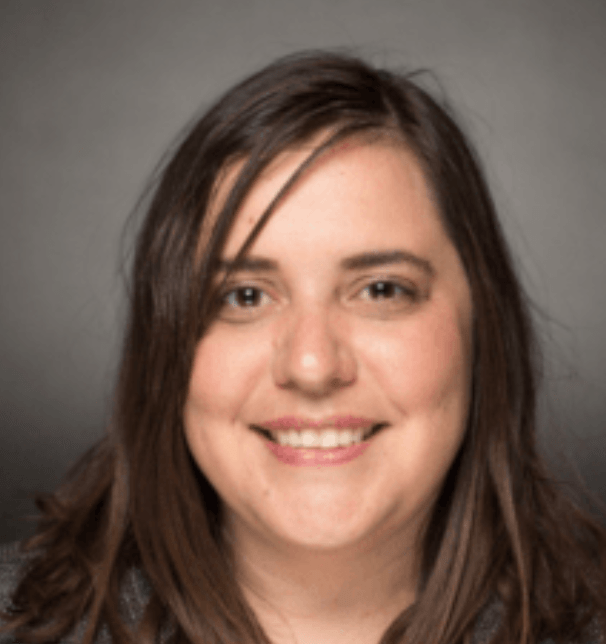
Bianca McCartt is an FY21-FY23 Senator. Bianca has been an active member of the SWE for 20 years, serving in a variety of volunteer positions including as FY19 & FY20 Co-Lead of the SWE Latinos Affinity Group. She works at GE Aviation.


